This article was co-authored by Zora Degrandpre, ND and by wikiHow staff writer, Janice Tieperman. Dr. Zora Degrandpre is a Natural Health Doctor and Licensed Naturopathic Physician in Vancouver, Washington. She is a grant reviewer for the National Institutes of Health and the National Center for Complementary and Alternative Medicine. She received her ND from the National College of Natural Medicine in 2007.
There are 20 references cited in this article, which can be found at the bottom of the page.
This article has been viewed 56,883 times.
Acne scars can take a big toll on your self-confidence, especially if there doesn’t seem to be a quick fix. Thankfully, there are a variety of at-home remedies that can help you get rid of acne scars. With some patience and TLC, you can improve the look of your skin. If you want more immediate results, talk to a dermatologist about professional treatments.
Steps
Trying At-Home Treatments
-
1Use hydroquinone and sunscreen to lighten your scars. Visit your local pharmacy or check online for a bleaching cream that helps diminish your acne scars.[1] Apply the lotion over any obvious acne scars, rub sun lotion overtop, and go outside as you normally would. If you don’t notice any difference in 4 weeks, contact a dermatologist for help.[2]
- Use this treatment whenever you go out into direct sunlight.
- Make sure you’re using a strong sunscreen that has at least 15 SPF.[3]
-
2Treat developing keloids with compression bandages. Bad cases of acne can result in keloids, or large, raised sections of tissue. To get rid of them, stick a tight compression bandage over the affected skin for an entire day. Change the bandage each day, and continue this process for at least 6 months.[4]
- Cryosurgery and corticosteroid injections are more intensive treatment options for keloids.
Advertisement -
3Give your acne scars time to heal. If you don’t want to invest in extra products and treatments, allow time to fade your scars. Monitor your scars over several months and see if you notice any improvement.[5]
- While time can fade discolored skin, you may need professional treatment to fix and remove indented scars.
-
4Don’t use vitamin E to treat your scars. Only use products and treatments that are recommended by dermatologists and the medical community. Note that products containing vitamin E, like vitamin E oil, won’t make your acne scars lighten or disappear.[6]
-
5Prevent future acne scars by washing your face. Clean your face on a regular basis, using a benzoyl peroxide-based cleanser. Use your hands to rub a blueberry-sized amount of cleanser into your skin. When you’re finished, use a fresh towel to blot away any extra water and cleanser.[7]
- You can also prevent acne by not touching your face that much.
- Don’t use exfoliating brushes or a washcloth to clean your face, as this can irritate your skin.
Getting Professional Treatments
-
1Get an acne-cleansing facial to lighten your scars. Schedule an appointment with your local spa or health network. During this session, professionals will clean your skin to remove extra oil. While there’s no guarantee that you’ll see instant results, this type of facial may be a good option if you have a busier lifestyle.[8]
-
2Schedule dermabrasion to remove or lessen your scars. Ask your dermatologist if dermabrasion could be an effective solution for skin. The treatment isn’t very intensive and involves an aesthetician buffing away the upper layer of the skin with a wire brush. While this may not get rid of your deep acne scars, they may look less obvious when the procedure is done.[9]
- Dermabrasion is good for removing surface scars.
- Dermabrasion can be pretty pricey and may cost over $1,000.
-
3Get a chemical peel to get rid of the old, scarred skin. Schedule an appointment with an aesthetician to get a chemical peel, which may get rid of your acne scarring. Depending on the severity of your scars, you can get a light, medium, or deep chemical peel. Don’t be surprised or alarmed if your skin is a bit swollen or red afterward, as this is very normal.[10]
-
4Receive micro-needling treatment to heal your skin naturally. Consult with a dermatologist to see if you’d be a good candidate for micro-needling, which, as the name suggests, involves an aesthetician poking your skin with small needles. This “poking” helps improve your skin’s collagen production, which makes your skin look healthier overall. Overall, the procedure will only take a half-hour.[13]
- You’ll need at least 4 micro-needling treatments before you see major results.
- Microneedling treatment costs can vary, so you’ll have to ask a skincare professional for a specific quote.
- You may be able to use a portable device to to give yourself micro-needling treatment at home.[14]
-
5Ask your dermatologist if laser resurfacing or therapy is an option. See if your dermatologist will perform a basic laser resurfacing treatment, which involves the dermatologist numbing your skin and getting rid of any damaged, scarred skin. If you’d prefer a more heavy-duty procedure, schedule an appointment for fractional laser therapy, which doesn’t damage the top of your skin. Both procedures have a pretty short recovery time, and it shouldn’t take more than 10 days for your skin to get back to normal.[15]
- Your skin heals more quickly after fractional laser therapy since your dermatologist won’t actually be hurting your skin at all.
- Laser resurfacing is a simple procedure, and your dermatologist may be able to do it in a single visit.
- Ask your dermatologist or healthcare professional what the average cost for these treatments are, as they tend to vary.[16]
-
6Opt for tissue fillers as a temporary fix. Talk to your dermatologist or dermatologist and see if you qualify for a soft tissue filling treatment. This process involves injecting fat or collagen in your scars, which helps make your skin look smoother and fuller. This treatment works best for scars with dips or dents, as it helps make your skin look smoother.[17]
- You may need multiple treatments, as soft tissue fillers aren’t permanent.
- This treatment may cost at least $690.[18]
Seeking Medical Assistance
-
1See a dermatologist if you have really severe acne. Most mild cases of acne can be managed with natural remedies and over-the-counter treatments. However, more severe cases can be hard to treat and are more likely to leave scars. Talk to your dermatologist about using prescription medications to heal your acne and prevent further scarring.[19]
- If you suddenly develop acne as an adult, see your dermatologist. This may be a sign of a more serious underlying condition.
-
2Call your dermatologist if home remedies don’t improve your scars. If you’ve been trying natural and over-the-counter remedies on your scars and you aren’t satisfied with the results, your dermatologist may be able to help. Make an appointment with them to discuss other treatment options.[20]
- Your dermatologist can examine your scars and help you determine which treatments might be most effective. They can also help you weigh the risks and benefits of each possible treatment.
- Some of the more severe scars can also be painful as they are growing.[21]
- It’s not uncommon for people with severe acne to experience depression. If you think you may be depressed, let your doctor know. They can help you get the treatment and support you need.[22]
-
3Get medical help if you have a bad reaction to a skin product. Even natural remedies can cause allergic reactions or irritation sometimes.[23] If you experience symptoms such as redness, rash, itching, or pain while using any medication or home remedy for your scars, stop using the treatment right away. Call your dermatologist if the symptoms don’t clear up on their own within 3 weeks.[24]
- You should also see your dermatologist if you develop a rash that is extremely painful or uncomfortable, appears suddenly, grows or spreads to other parts of your body, or affects your face or genitals.
- Seek emergency medical care if you experience symptoms of a severe allergic reaction, such as difficulty breathing, a rapid heartbeat, faintness or confusion, or swelling of your face, throat, or tongue.
- Get advice from your dermatologist before trying herbal remedies or dietary supplements. Some of these treatments can interact badly with other medications or supplements, or they may cause problems if you have certain medical conditions.
Things You’ll Need
Trying At-Home Treatments
- Hydroquinone cream
- Sunscreen (SPF 15+)
- Compression bandage
- Benzoyl peroxide cleanser
- Towel
References
- ↑ https://www.mayoclinic.org/diseases-conditions/acne/expert-answers/acne-scars/faq-20058101
- ↑ https://www.aocd.org/page/Hydroquinone
- ↑ https://www.aocd.org/page/SunscreensandTanni
- ↑ https://www.health.harvard.edu/a_to_z/keloids-a-to-z
- ↑ https://newsnetwork.mayoclinic.org/discussion/mayo-clinic-q-and-a-treatment-options-for-acne-scars-that-dont-improve-over-time/
- ↑ https://www.health.harvard.edu/womens-health/dont-fall-for-these-skin-myths
- ↑ https://www.rush.edu/health-wellness/discover-health/12-tips-combat-acne
- ↑ https://www.lvhn.org/treatments/facials
- ↑ https://www.mayoclinic.org/diseases-conditions/acne/expert-answers/acne-scars/faq-20058101
- ↑ https://www.mayoclinic.org/tests-procedures/chemical-peel/about/pac-20393473
- ↑ https://my.clevelandclinic.org/health/treatments/11010-chemical-peels?_ga=2.46475552.664138872.1584385568-365511430.1566245546
- ↑ https://www.plasticsurgery.org/cosmetic-procedures/chemical-peel/cost
- ↑ https://www.pennmedicine.org/cosmetic-services/cosmetic-procedures/skin-care-treatments/microneedling
- ↑ https://www.ucihealth.org/blog/2018/01/dermaplaning-microneedling
- ↑ https://kidshealth.org/en/teens/acne-scars.html
- ↑ https://www.plasticsurgery.org/cosmetic-procedures/laser-skin-resurfacing/cost
- ↑ https://www.mayoclinic.org/diseases-conditions/acne/expert-answers/acne-scars/faq-20058101
- ↑ https://www.plasticsurgery.org/cosmetic-procedures/dermal-fillers/cost
- ↑ https://www.mayoclinic.org/diseases-conditions/acne/symptoms-causes/syc-20368047
- ↑ https://www.mayoclinic.org/diseases-conditions/acne/expert-answers/acne-scars/faq-20058101
- ↑ https://familydoctor.org/condition/keloids/
- ↑ https://www.nhs.uk/conditions/acne/complications/
- ↑ https://www.mayoclinic.org/diseases-conditions/acne/symptoms-causes/syc-20368047
- ↑ https://www.mayoclinic.org/diseases-conditions/contact-dermatitis/symptoms-causes/syc-20352742
- ↑ https://www.mayoclinic.org/diseases-conditions/acne/expert-answers/acne-scars/faq-20058101
About This Article
To get rid of acne scars naturally, try soaking a cotton ball with lemon juice and applying that directly to your scar 1-2 times a day. However, keep in mind that you shouldn't expose lemon juice-treated skin to sunlight, as it could result in bleaching. If you are able to find a Traditional Chinese Medicine practitioner in your area, try mixing half a teaspoon of Radix arnebiae with 1-2 tablespoons of castor oil. Then, massage the mixture into your scar tissue 3-4 times a day. Other ways to remove acne scars naturally include pressing aloe vera gel, lavender oil, St John's wort oil, or green tea bags to your scars for 10-15 minutes. To treat your acne scars medically, ask your dermatologist about treatment options. For more tips from our Medical co-author, like how to use vitamin supplements to improve the appearance of your scars, scroll down.
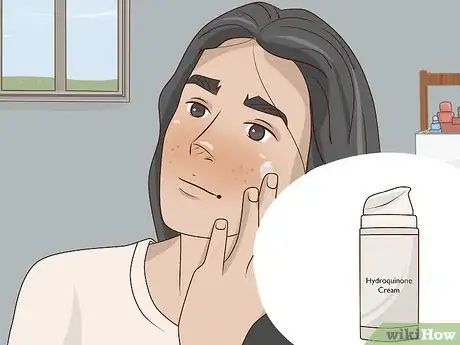
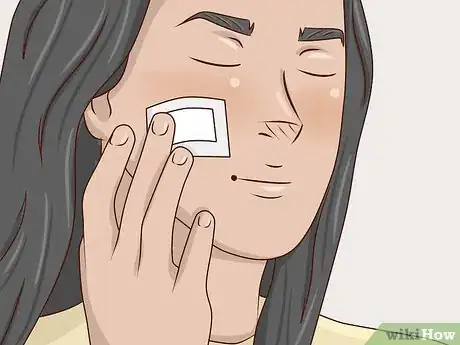
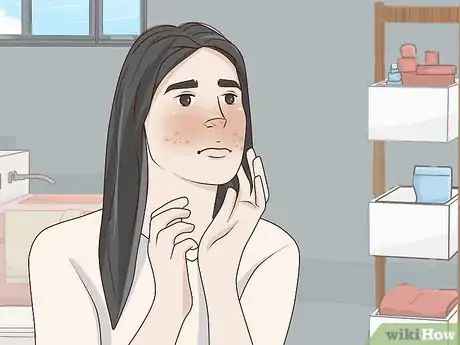
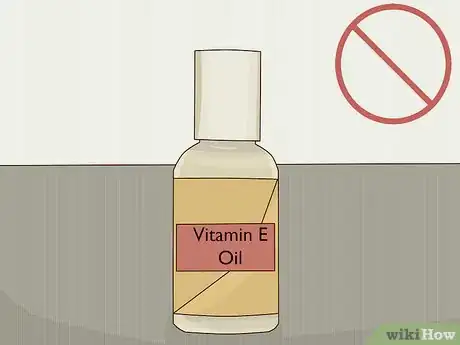
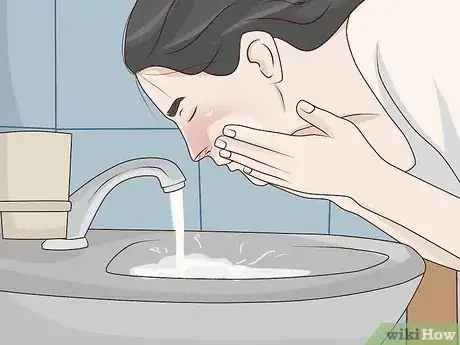
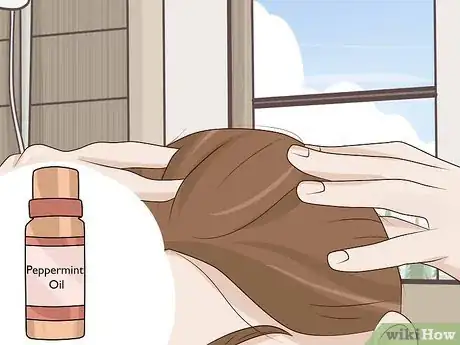
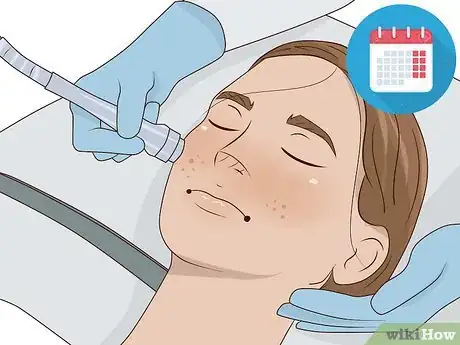
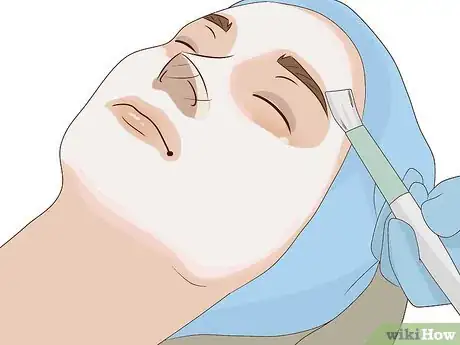
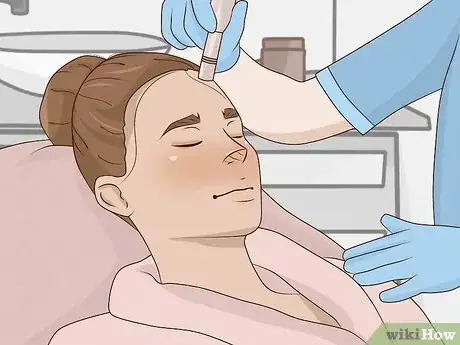
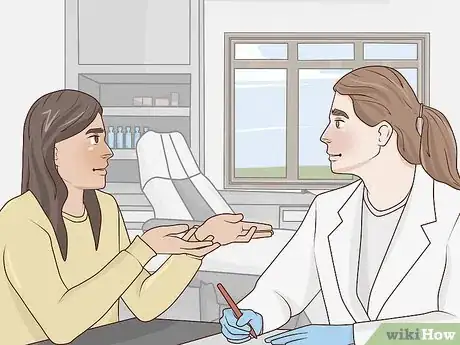
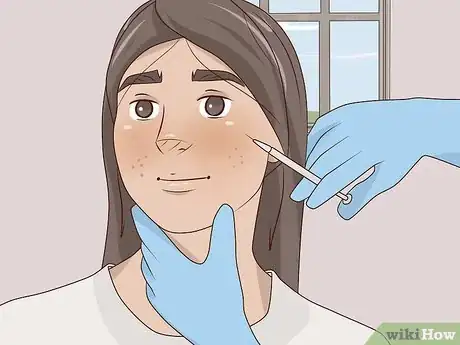
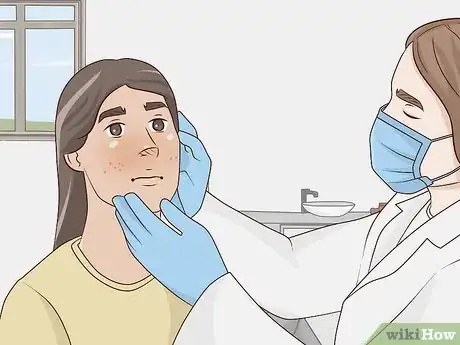
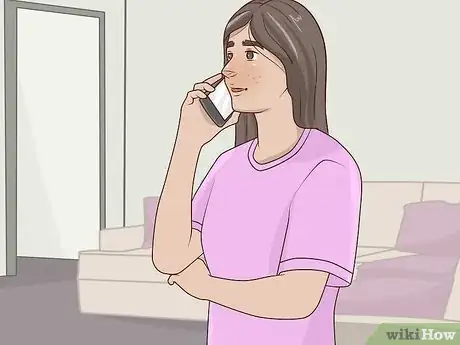
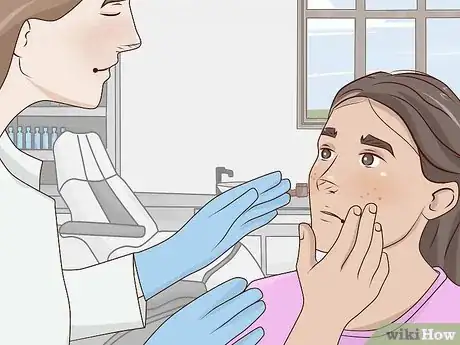
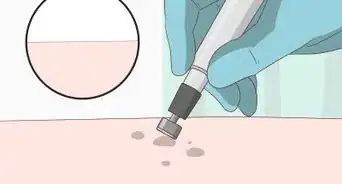
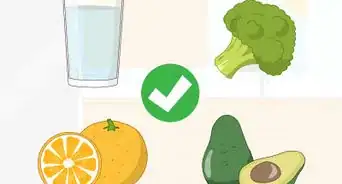
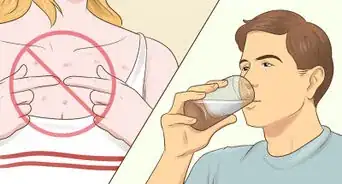
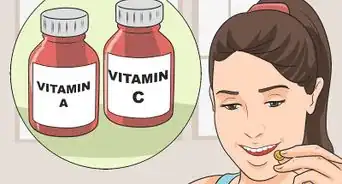
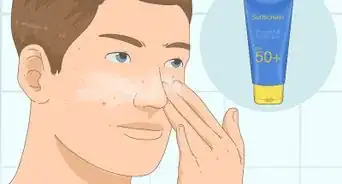
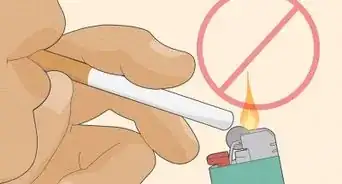











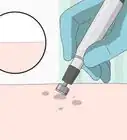

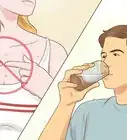
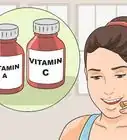



































Medical Disclaimer
The content of this article is not intended to be a substitute for professional medical advice, examination, diagnosis, or treatment. You should always contact your doctor or other qualified healthcare professional before starting, changing, or stopping any kind of health treatment.
Read More...